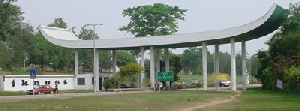The National Accreditation Board (NAB) has called for closer collaboration and cooperation from all stakeholders in enforcement of admission regulations to ensure sanity and sustain confidence in the grading and qualification systems of the tertiary educational institutions.
Mr. Kwame Dattey, the Executive Secretary, said since tertiary education is universal, qualifications and certificates from the institutions must meet basic international standards - recognized and accepted worldwide.
It is therefore in the interest of students to be graded appropriately and issued with certificates that would be recognized and made them competitive in global job market.
Mr. Dattey was speaking at a day’s seminar on admission requirements into tertiary institutions organized by NAB for selected tertiary institutions in the northern sector, in Kumasi, on Wednesday.
He said it was not the intention of the Board to either harass or thwart efforts of individuals or groups to establish schools.
What it has been insisting on is that the institutions must accept qualified applicants, recruit qualified faculty members and provide quality education that meets international standard.
Mr. Dattey noted that physical structures alone did not make a tertiary institution, saying not all of them required physical edifices before they could run.
He said what was important was that they should comply with the admission requirements.
The Board, he said, had the capacity and mechanisms in place to determine whether certificates from foreign applicants qualified them to enroll in Ghanaian tertiary institutions and urged school authorities not to hesitate to contact them in such situations.
Holders of “DBS” and “American SAT”, “TOFEL” and others cannot use them to enroll in tertiary institutions except they have, in addition, senior high school qualifications.
Mr. Dattey recommended to the polytechnics to consider reducing the duration of the HND programme to two years and place much emphasis on practical training to enable their products compete favorably with their counterparts abroad.
Regional News of Thursday, 23 August 2012
Source: GNA

















